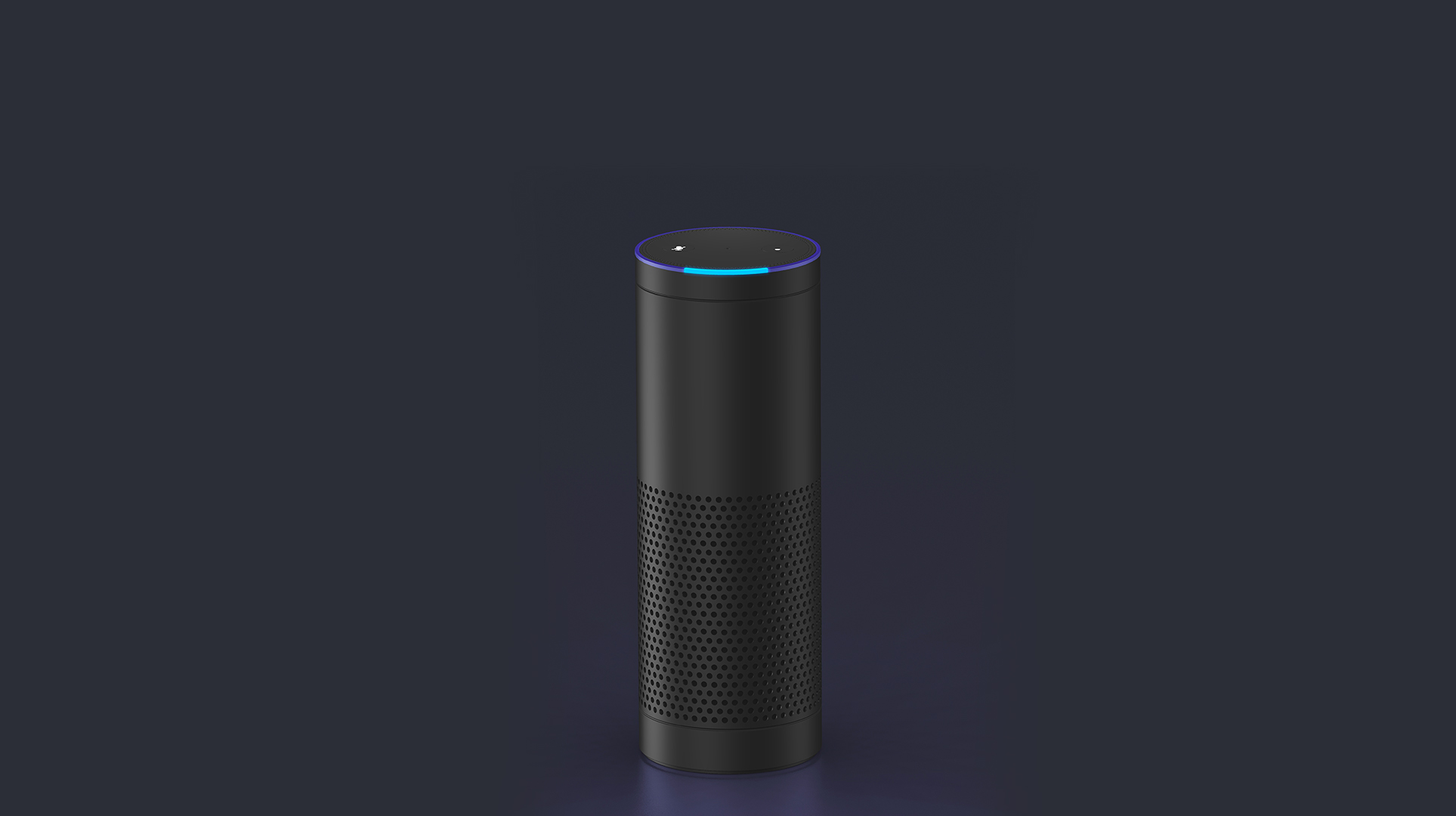
Inspired by the computer voice that ran on the starship Enterprise, Amazon Alexa is a voice-controlled virtual personal assistant that’s changing the way we interact with technology.
In 2014 Amazon released the Echo – a smart speaker that connects to the Amazon Alexa Voice Service. It enables users to control their smart home devices, play music, make hands free calls, shop online, provide information, arrange bookings and a whole host of other services. All through the use of voice. The Echo houses several microphones that use beam-forming technology along with incredible noise cancellation that allows the Echo to detect “wake” words in noisy environments.
Wake words activate Alexa to start recording. The Echo then sends those audio clips to the cloud where the request can be interpreted. In addition to “Alexa” the Echo devices also register the words “Echo”, “Amazon” and “Computer” (a friendly nod to Star Trek’s inspiration).
Virtual AI assistants have been steadily gaining popularity among consumers and business. Right now the four main ones are Cortana (Microsoft), Google Assistant, Siri (Apple) and Alexa (Amazon). All have their strengths and weaknesses. Alexa hooks seamlessly into Amazon’s ecosystem making online shopping a delight, while the Google Assistant has the advantage of integrating with G Suite allowing users to access their calendar and emails. If you’re an Apple customer then Homepod uses Siri to access your Apple music and you can send receive messages if your iPhone is on the same wifi. Cortana is more business-oriented and leverages core microsoft products such as Office 365, Outlook.com, LinkedIn and Bing to create seamless workflows.
Amazon Alexa – An AI with skills
One of the main selling points of Alexa is Alexa skills. Skills are essentially voice applications that users can activate through Alexa. There are over 30,000 skills available at the time of writing, with new skills being added daily. Use cases are seemingly endless and brands are fully taking advantage of this new technology to reach more customers. Uber, for example, has a skill available for users to simply state “Alexa, ask Uber for a ride” and their car will arrive in a few short minutes. The novelty of interacting with services and brands in this way along with making experiences more frictionless is what’s driving consumer interest and demand for Alexa skill development.
There are, however, privacy concerns surrounding smart speakers. Alexa has been in the spotlight for strange accounts where a private conversation was sent to a user’s contacts. The Apple Homepod can connect to an iPhone and read texts out loud, allowing anyone to access a person’s messages. These are issues to be aware of and users should be cautious with which devices and services are synced to their Virtual AI assistants.
Virtual AI assistants and smart speakers are incredibly exciting spaces to watch. Recently, Amazon and Microsoft teamed to enable both AIs (Alexa and Cortana) to talk to each other. With collaborations like these there won’t be one AI that becomes dominant, there’ll be multiple AIs each with their strengths and associated products. This type of collaboration can only help drive innovation and progress.
Here at FX Digital we have a dedicated voice user interface team designing and developing Alexa skills. If you’d like to speak with us on how we could help your brand develop an Alexa skill feel free to pop in for a coffee and a chat: Contact us.





